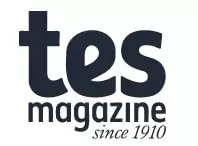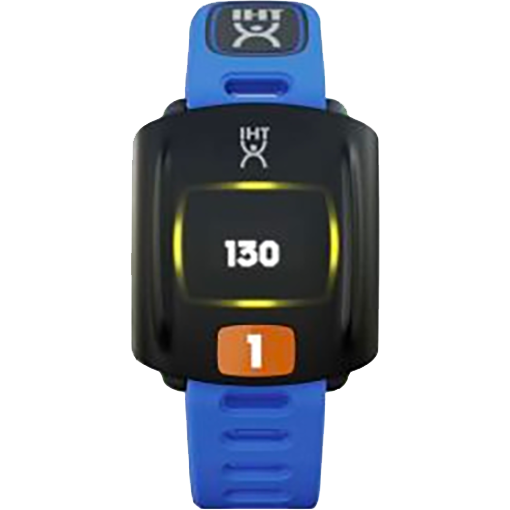Originally published March 18, 2022 by TES Magazine.
By John Roberts
Ofsted (the Office for Standards in Education) has produced a new research review exploring what schools can do to deliver a "high-quality PE curriculum".
The inspectorate has said that a strong PE curriculum should clearly state what it means to get better at the subject.
 Its report, published today, suggests that, through PE, pupils should learn "increasingly intelligent movement" along with important knowledge that can reduce barriers to participation and inform their own healthy lifestyle choices.
Its report, published today, suggests that, through PE, pupils should learn "increasingly intelligent movement" along with important knowledge that can reduce barriers to participation and inform their own healthy lifestyle choices.
Chief inspector Amanda Spielman said that for many pupils "the two hours of school PE each week are their only structured physical activity".
She added: "An ambitious PE curriculum levels the playing field by giving all pupils the benefits of physical activity and sport, despite the advantages that some pupils will have outside the school gates.
"I hope this review helps raise the quality of PE for all young people."
Here are seven interesting findings from Ofsted's review:
1. PE can help pupils' personal development
The inspectorate's research review says that PE can make a valuable contribution to pupils' personal development.
When Ofsted assesses how a school supports pupils' personal development, it considers how the curriculum can extend beyond the academic, technical or vocational.
In the context of PE, Ofsted said that this can include how schools are developing pupils' understanding of how to keep physically healthy, eat healthily and maintain an active lifestyle, including "giving ample opportunities for pupils to be active during the school day and through extracurricular activities".
2. Extracurricular sport can complement but not replace the PE curriculum
The report says that extracurricular provision and sport that occur within school can and should complement and enrich the PE curriculum for all.
It adds: "In this way, there is a symbiotic relationship between timetabled lessons and extracurricular participation.
"However, extracurricular activities cannot replace the careful selection and sequencing of content that is required to physically educate all pupils so that they know more and can do more."
The report also says that the body of knowledge that informs PE draws on a range of disciplines, including physiology, psychology and sociology.
It adds: "For example, knowledge of how breathing rates increase during exercise has been established through scientific enquiry, whereas strategies to outwit an opponent in rugby have their disciplinary roots in elite sport.
"To be physically educated is to competently and confidently apply the important contributions that each field makes to your own participation in sport and physical activity."
3. PE can support a more active society and reduce inequalities
The report says that although PE is far wider than physical activity alone, it does "play an important role in promoting and sustaining physical activity".
Ofsted says that decisions pupils make about physical activity can be affected by how much family support they have, their families' economic status and the perceptions they have built based on play and sport from an early age.
It adds: "Timetabled PE lessons might be the only opportunity that some pupils have to learn the knowledge they need to make informed decisions about their own participation in physical activity.
"Although it cannot create and sustain an active society alone, an ambitious PE curriculum can ensure that all pupils have a chance to benefit from physical activity and sport, despite the subtle advantages that only some pupils get beyond the school gates.
"Through the careful selection and sequencing of curriculum content that develops pupils' competence, more pupils can believe that PE is for them and inequalities can be reduced."
4. Ofsted identifies three 'pillars of progression'
Ofsted's research review identifies three "pillars of progression" that pupils need to develop the "competence to participate".
It says these are:
- Motor competence - knowledge of the range of movements that become increasingly sport- and physical activity-specific.
- Rules, strategies and tactics - knowledge of the conventions of participation in different sports and physical activities.
- Healthy participation - knowledge of safe and effective participation.
The report highlights the importance of a strong foundation of fundamental movement skills (FMS) starting in the early years.
It said this should then "sequentially develop" through transitional activities "into more specialised sport and physical activity contexts".
It adds that FMS is a precondition to accessing the later, more specialised movement patterns required for competence in sport and physical activity.
It also says that knowledge of healthy participation includes important knowledge of key concepts about health, participation and physical activity.
5. Knowing more and doing more in PE
The review identifies several features that it suggests could be factors in a school's high-quality PE provision.
This includes that leaders and teachers have thought carefully about what it is "to know more and do more in PE".
It said this understanding is informed by the national curriculum's aims and that component knowledge has been identified to develop pupils' competence.
Other features Ofsted identifies as being elements of high-quality PE provision include teachers knowing that PE is not synonymous with physical activity or sport. "They share similarities but also have important differences," the watchdog adds.
6. The importance of pupils understanding the vocabulary of PE
The report highlights how PE is a vocabulary-rich subject.
It adds: "Besides the specific terminology, including, for example, muscle names or names of specific movements, there are some informal terms used that effectively "chunk" together multiple and complex instructions or feedback.
"For example, when playing football, the word 'line' is often used to instruct someone to continue using the width of the playing area and pass the ball down the sideline to a teammate."
Ofsted said pupils will only know the meaning of terms like this and be able to attempt to respond as intended if they have been taught the specific language of the activity or sport.
It warns that a lack of shared understanding can be a barrier to participation, and pupils can feel excluded from certain activities and sports if they do not know the terminology.
7. Planning PE for pupils with SEND
The Ofsted review said that a high-quality curriculum in PE is one that meets the needs of all pupils and teaches the knowledge required to participate in physical activity and sport.
It adds: "A curriculum that is ambitious for pupils with SEND (special educational needs or disabilities) will make sure that pupils with SEND have access to content that does not impose an artificial ceiling on what they can achieve."
Ofsted said that pupils with SEND are not a homogenous group and warns that providing different activities for pupils without adequate consultation and understanding of their specific needs can predetermine what each pupil can achieve.
It adds: "Pupils themselves can provide much-needed expertise on their own needs…Leaders and teachers should plan fully for inclusion and recognise that adaptations might be required for some pupils, rather than begin from a place of fully adapted practice, which might mean that pupils with SEND are subject to lower aspirations."
Boost Student Wellness with the IHT ZONE heart rate monitor:




